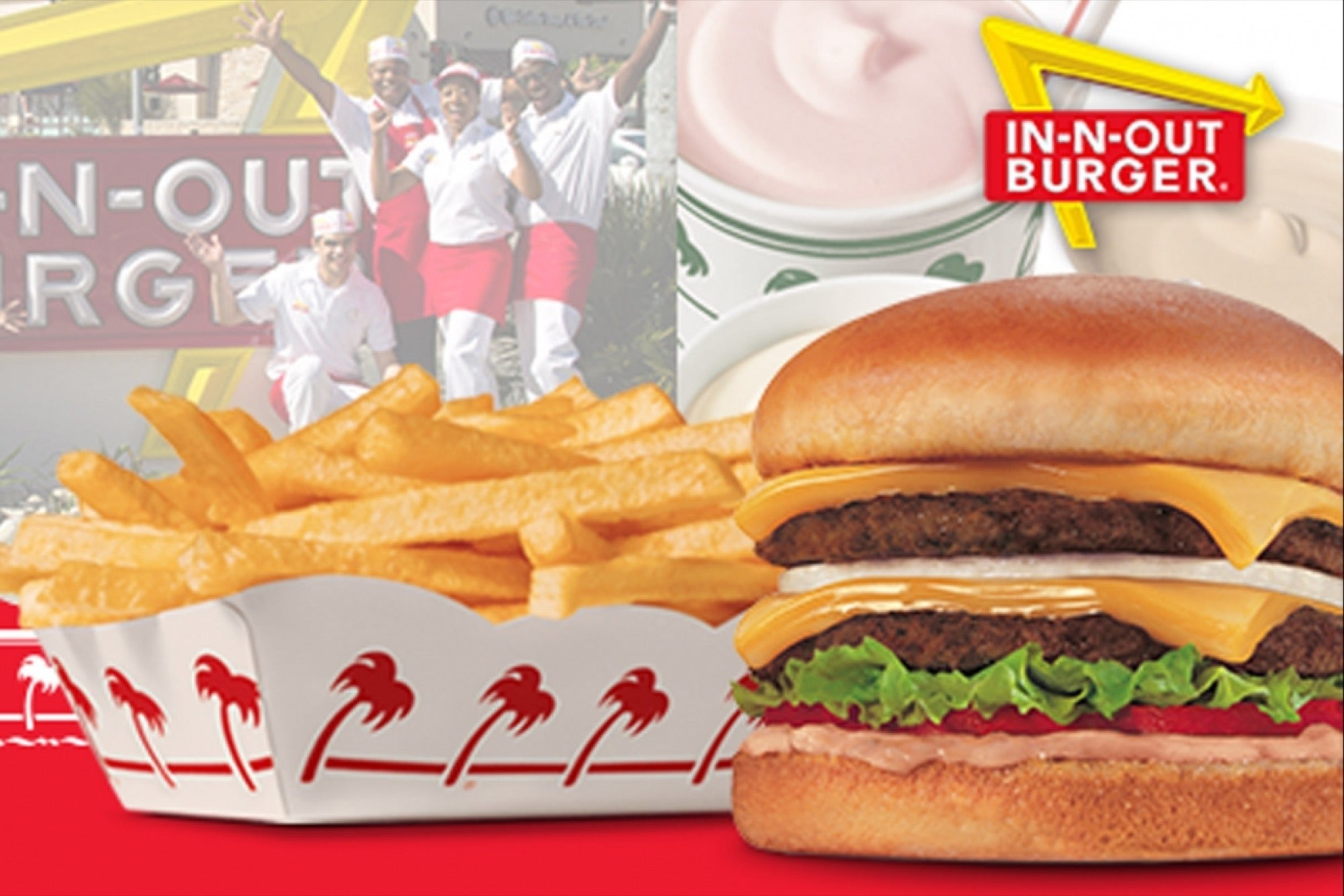Is It So Wrong That DoorDash Delivers a Delicious Double Double to My Front Door? Here are the ins and outs of the legal battle involving fast-food burger giant In-N-Out and DoorDash, a food-delivery startup.
Opinions expressed by Entrepreneur contributors are their own.

One of the simple pleasures of living in Southern California is eating In-N-Out burgers. Just thinking about a Double Double makes me salivate. If there were only a way to have one delivered to me ... Oh wait, there's a startup for that?
It's not everyday an intellectual property (IP) attorney gets to talk about IP and food. So let's dig into the juicy details of the trademark dispute in this David versus Goliath legal battle involving In-N-Out and DoorDash, a food-delivery startup. (Disclaimer: I will be using as many food euphemisms as possible in this post. Please enjoy.)
Related: Why In-N-Out Is Suing a Delivery Startup
At the outset, the trademark claim in this case is only one of several legal claims that In-N-Out is asserting against DoorDash. I will focus on only the trademark issue which, at first glance, differs from your typical infringement scenario, where an accused infringer sells competing products under an allegedly similar mark.
Since "DoorDash" sounds nothing like "In-N-Out," it may not be readily apparent why the burger chain would even assert a claim of trademark infringement. In fact, DoorDash doesn't even make food but delivers it from local establishments.
The core of this trademark dispute is the issue of false connection or false affiliation. Does DoorDash use In-N-Out's trademark in such a way so as to suggest an affiliation or connection with the burger chain that doesn't actually exist? Keep in mind that trademark laws generally serve to protect the public from confusion and deception. Trademark owners need not prove actual confusion but only a likelihood of confusion in order to stop others from registering or using an infringing mark.
This case could have significant implications for the gig economy. Startups are developing not only new products, but new ways to get existing products into the hands of consumers. One key issue, therefore, is whether it is ever lawful for a distinctly named delivery service to deliver branded product from a retailer / brick-and-mortar store without permission from the brand or the retailer.
Related: From Rides to Eats, Uber Launches New Food-Delivery Service
In other words, is a false connection with the brand or retailer automatically created by virtue of the delivery service offering to deliver those branded products? If so, then every delivery business would need to obtain a license or authorization to deliver a third party's products. Suppose I wanted to pick up a dishwasher today from a home goods retailer, but I don't have the time or means to pick up the burdensome product. Would a delivery service, other than one offered by the retailer, automatically infringe trademarks belonging to either the retailer or the appliance brand by offering to deliver the product to me?
Personally, I would not be confused into thinking any deficiency in the delivery service should be attributed to the product / retailer or vice-versa. However, I recognize my analogy is imperfect, because food has special timing requirements that are not inherent in a home appliance, for example. Perhaps the meatier claims by In-N-Out relate to food laws.
It'll be interesting to how this case plays out if the parties don't settle. In the meantime, I'll continue wishing that a Double Double will magically appear in front of me.











